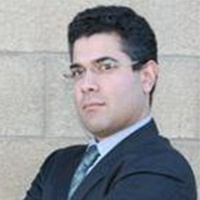Cory Estate Lawyer, Colorado
Brandon U. Luna
✓ VERIFIEDCriminal, Divorce & Family Law, Estate, Traffic, Juvenile Law
At LunaLaw, LLC, we focus all of our resources on providing exceptional client service in the full range of criminal defense and family law matters. N... (more)
James Edward Siegesmund
Divorce & Family Law, Criminal, Estate, Traffic
Status: In Good Standing Licensed: 19 Years
Susan Butler Hillyard
Commercial Real Estate, Visa, Estate Administration, Estate Planning
Status: In Good Standing Licensed: 46 Years
James R. Briscoe
Government, Elder Law, Trusts, Wills & Probate
Status: In Good Standing Licensed: 55 Years
Stephen Gregg Stanway
Real Estate, Government, Education, Trusts
Status: In Good Standing Licensed: 47 Years
Stephen Gregg Stanway
Education, Government, Commercial Real Estate, Trusts
Status: In Good Standing Licensed: 47 Years


